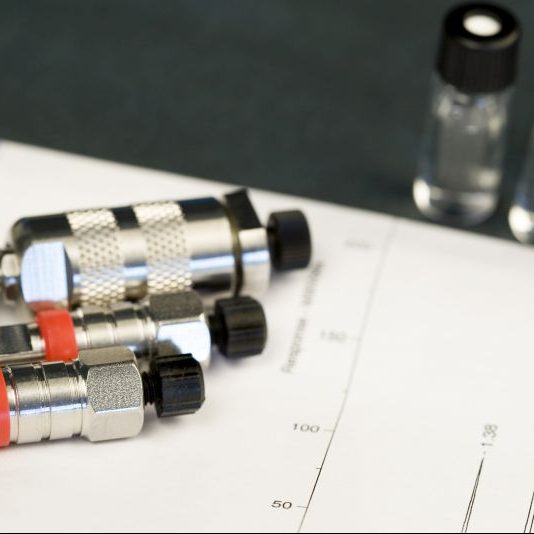Analysis of Cannabidiol, THC and other cannabinoids in hemp-based botanicals
Hemp seeds, hemp oil, hemp flour, hemp tea, hemp beer or food supplements containing cannabidiol (CBD): products containing ingredients derived from the hemp plant (Cannabis sativa L.) are currently experiencing a sustained boom in the health and wellness market. This being said, dynamic developments are taking place with respect to the interpretation of law and scientific assessment.

Legal provisions
Legally compliant, sustainable marketing of hemp products requires a meticulous regulatory concept to the same extent as reliable monitoring of legally relevant constituents, particularly including Δ9-tetrahydrocannabinol (Δ9-THC) and Δ9-tetrahydrocannabinolic acid (Δ9-THCA), by means of validated methods in an accredited laboratory. Court rulings and publications on the risk assessment of Δ9-THC levels in food and have brought hemp products and cannabinoids back into focus in recent months.
In March 2021, the Federal Supreme Court of Germany (BGH) reached a decision on the marketing of hemp tea obtained from EU-certified industrial hemp with a low THC content (judgement of 24 March 2021 - 6 StR 240/20). The Court confirmed the narcotic character of the products at issue (THC content between 0.08% and 0.33%) as established by the Regional Court of Brunswick, on the basis of the "Cannabis" entry in Annex I to Section 1 (1) (b) of the German Narcotics Law and the exclusion of abuse for the purpose of intoxication laid down in this document. According to the expert opinion, the possibility of abuse was not excluded as the tea could be used as an ingredient in cookies, for example, thereby enabling abuse for the purpose of intoxication by virtue of its THC content. The Federal Supreme Court did not confirm the suspended sentences imposed by the Regional Court of Brunswick - on the basis of procedural errors.
In the course of a preliminary reference procedure in a case on the free movement on goods (Case C-663/18) at the end of 2020, the Court of Justice of the European Union (CJEU) confirmed that cannabidiol (CBD) does not cause any psychotropic effects and products containing natural CBD may therefore be regarded as being food. After suspending the processing of applications for novel foods because of the previously uncertain assessment of CBD, the EU Commission is now resuming its examination of novel food applications.
Safety assessment conducted by the German Federal Institute for Risk Assessment (BfR) and EFSA
For a long time, guideline values for total THC levels in food containing hemp dating back to the year 2000 were the only ones available in Germany. These amounted to 5 µg/kg for non-alcoholic and alcoholic beverages, 5,000 µg/kg for edible oils and 150 µg/kg for all other types of food.
The total THC level is determined as the sum of Δ9-tetrahydrocannabinol (Δ9-THC) and Δ9-tetrahydrocannabinolic acid (Δ9-THCA), as the latter can be degraded to Δ9-THC when exposed to heat and therefore constitutes potential Δ9-THC. In 2018, the BfR came to the conclusion that the guideline values laid down by the Federal Institute for Health Protection of Consumers and Veterinary Medicine (BgVV) in 2000 no longer provide a suitable basis for an assessment of foods containing hemp as they do not always ensure adherence to the acute reference dose (ARfD) of 1 µg Δ9-THC per kg body weight established by the European Food Safety Authority (EFSA) in 2015.


Analytical quality assurance
In a recent statement dated 17 February 2021, the BfR recommends that total THC, i.e. the sum of Δ9-THC and Δ9-THCA, should be used for the toxicological assessment, provided that the measured values relate to the starting products. Considering that the possibility of heat treatment cannot be excluded, it seems appropriate to use the total content of Δ9-THC and Δ9-THCA determined in the raw material for assessments and relate it directly to the ARfD. This means that a method for legally compliant quality control of hemp products must include both Δ9-THC and Δ9-THCA. The CBD and cannabidiolic acid (CBDA) levels must also be determined for nutritional supplements containing CBD.
PhytoLab has developed a highly sensitive LC-MS/MS procedure for determination of Δ9-THC / Δ9-THCA and CBD / CBDA, which has been validated for tea blends containing hemp seeds, hemp oil and hemp herb*.
Table 1: Cannabinoid/Limit of Quantitation (LOQ)
| Δ9-THC | Δ9-THCA | CBD | CBDA | |
|---|---|---|---|---|
| Hemp seeds | 0,01 mg/kg | 0,01 mg/kg | 0,05 mg/kg | 0,01 mg/kg |
| Hemp oil | 0,1 mg/kg | 0,1 mg/kg | 0,1 mg/kg | 0,1 mg/kg |
*The quantification limits for cannabinoids in tea blends containing hemp herb can only be estimated, as the naturally occurring content is well above the determination limits that can be achieved by means of analysis. The determination limits for hemp seeds may be used for orientation purposes.
We conduct quantitative analyses of cannabinoids within the framework of our accreditation in accordance with ISO 17025:2018 and would be happy to draw up an offer for your individual requirements.
PhytoLab GmbH & Co. KG
- Dutendorfer Straße 5-7
91487 Vestenbergsgreuth
Germany
References
BgVV empfiehlt Richtwerte für THC (Tetrahydrocannabinol) in hanfhaltigen Lebensmitteln [BgVV recommends guidelines values for THC (tetrahydrocannabinol) in foods containing hemp], Press and Public Relations Office of the Federal Institute for Health Protection of Consumers and Veterinary Medicine (BgVV), 07/2000, 16 March 2000
https://www.bfr.bund.de/de/presseinformation/2000/07/bgvv_empfiehlt_richt-werte_fuer_thc__tetrahydrocannabinol__in_hanfhaltigen_lebensmitteln-884.html
Tetrahydrocannabinol levels are too high in many hemp-containing foods, BfR Opinion No. 034/2018 of 8 November 2018 https://www.bfr.bund.de/cm/349/tetrahydrocannabinol-levels-are-too-high-in-many-hemp-containing-foods-health-impairments-are-possible.pdf
The BfR recommends acute reference dose as basis for assessing hemp-containing foodstuffs, BfR Opinion No. 006/2021 of 17 February 2021
https://www.bfr.bund.de/cm/349/the-bfr-recommends-acute-reference-dose-as-basis-for-assessing-hemp-containing-foodstuff.pdf
Scientific Opinion on the risks for human health related to the presence of tetrahydrocannabinol (THC) in milk and other food of animal origin EFSA Journal 2015;13(6):4141
https://www.efsa.europa.eu/de/efsajournal/pub/4141